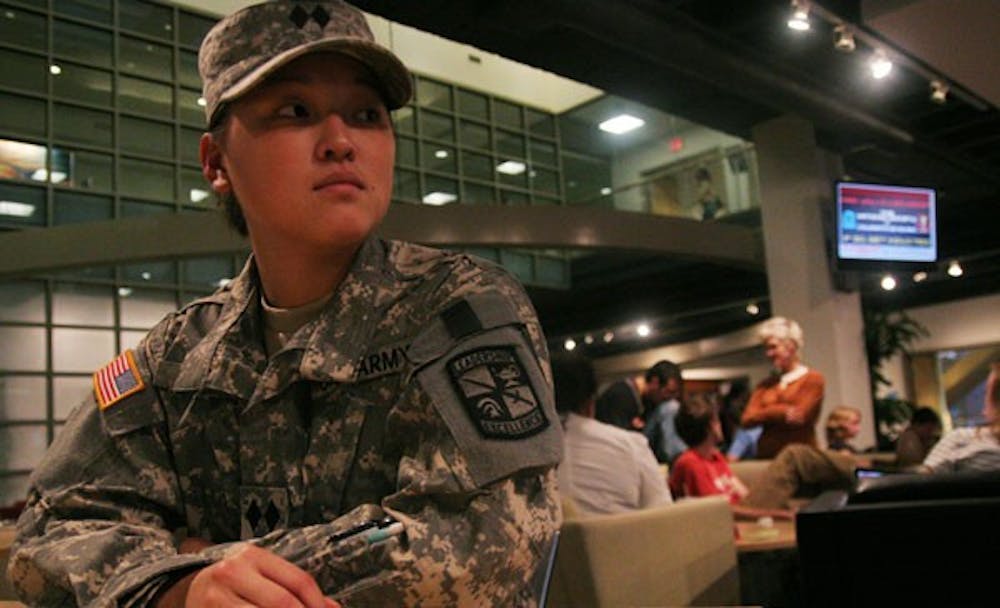A national magazine recently recognized four UNC-system schools for their military programs, making the UNC system one of the most “military friendly” public university systems in the country.
East Carolina University, UNC-Wilmington, N.C. Central University and Western Carolina University were named in G.I. Jobs’ ranking of military-friendly schools, a publication devoted to helping service men and women find careers after the military.
The list, put out annually, is based on a survey that evaluates certifications, programs and benefits offered to the military at universities, such as outreach programs, scholarships and discounts provided to active duty, veterans and military spouses, said Dan Fazio, managing editor for G.I. Jobs.
Other public university systems with multiple schools on this year’s list include those in Pennsylvania and New York, Fazio said.
The four universities recognized from the UNC system accept the GI Bill to help pay for tuition and also have programs to enhance the relationship between the university and the military. Three of the four have ROTC programs.
Kimrey Rhinehardt, vice president for federal relations for the UNC system, said a systemwide tuition policy allows active duty military and their families stationed in North Carolina to qualify for in-state tuition.
Maj. Megan Mangan, recruiting operations officer for an ROTC partnership between Duke University and NCCU, said the way the program is designed could have contributed to NCCU’s recognition.
The partnership allows students to be part of a diverse group, which adds a depth that other programs can’t offer, Mangan said.
Jeff Netznik, military outreach associate director at ECU, said ECU’s proximity to bases such as the U.S. Coast Guard Air Station Elizabeth City and naval and marine base Camp Lejeune promote interaction with the military population.
ECU offers classes on base that count for university credit and online classes that members of the military can take from anywhere. Netznik said he travels to the bases four days a week.
The online program offers more than 60 degrees and certificates and has a higher rate of participation than the traditional classes, Netznik said.
“With our online programs we can pretty much cover the whole state of N.C.,” he said. “We let them know we’re available.”
WCU offers credit for technical experience gained in the field. WCU will give credit in its emergency medical care program for skills learned as a U.S. Army Special Forces medic.
The program sets WCU apart from most schools, said Chuck Gross, director of military education at WCU.
“One of those guys can come to Western having never attended college and have 56 credit hours to start,” Gross said.
Despite all this, Rhinehardt said the UNC system sees military relations as a place where universities can improve.
“You cannot look at the future of North Carolina without factoring in the military presence,” she said.
Contact the State & National Editor at stntdesk@unc.edu.
UNC system considered a ‘military-friendly’ place

Kristi McNair, a journalism major from Okinawa, Japan, sits in her Army ROTC uniform in the Student Union. DTH/Lauren McCay



